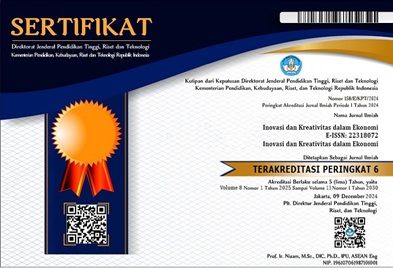PERAN PEMERINTAH DALAM PENYEDIAAN BARANG DAN JASA PUBLIK
Kata Kunci:
Barang Publik, Jasa Publik, Peran Pemerintah, Kegagalan Pasar, Tata Kelola, Kesejahteraan MasyarakatAbstrak
Penelitian ini bertujuan untuk menganalisis peran strategis pemerintah dalam penyediaan barang dan jasa publik guna mewujudkan kesejahteraan dan keadilan sosial bagi seluruh masyarakat. Barang dan jasa publik, seperti pendidikan, layanan kesehatan, infrastruktur, dan administrasi publik, memiliki karakteristik non-rivalrous dan non-excludable, sehingga tidak dapat sepenuhnya diserahkan kepada mekanisme pasar. Melalui pendekatan kajian literatur (literature review), penelitian ini mengkaji berbagai teori, kebijakan, dan studi sebelumnya yang relevan untuk memahami tantangan serta strategi optimal dalam penyediaan layanan publik. Hasil kajian menunjukkan bahwa intervensi pemerintah sangat diperlukan untuk mengatasi kegagalan pasar, menjamin pemerataan akses, serta mendukung pembangunan berkelanjutan. Selain itu, peran pemerintah sebagai regulator, fasilitator, dan pelaksana harus didukung oleh tata kelola pemerintahan yang baik, transparansi, serta pemanfaatan teknologi digital. Penelitian ini merekomendasikan peningkatan kolaborasi dengan sektor swasta, evaluasi kebijakan secara berkala, serta prioritas pada daerah tertinggal untuk meningkatkan kualitas dan efektivitas layanan publik.
This study aims to analyze the strategic role of government in the provision of public goods and services in order to realize welfare and social justice for the entire community. Public goods and services, such as education, health services, infrastructure, and public administration, have non-rivalrous and non-excludable characteristics, so they cannot be completely left to market mechanisms. Through a literature review approach, this study examines various theories, policies, and previous studies that are relevant to understanding the challenges and optimal strategies in the provision of public services. The results of the study indicate that government intervention is very much needed to overcome market failures, ensure equal access, and support sustainable development. In addition, the role of government as a regulator, facilitator, and implementer must be supported by good governance, transparency, and the use of digital technology. This study recommends increasing collaboration with the private sector, periodic policy evaluations, and prioritizing disadvantaged areas to improve the quality and effectiveness of public services.





